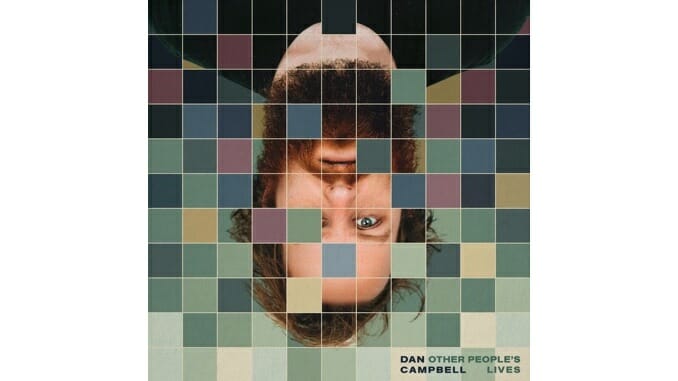The Wonder Years’ Dan Campbell Goes Folk on Other People’s Lives
The Wonder Years vocalist does himself no favors by allowing saccharine ballads to take the lead on his solo debut

On the last The Wonder Years album, lead vocalist Dan Campbell was struck by the realization that his music had taken on a life beyond him and his bandmates. With the release of 2010’s The Upsides, an ever-growing fan base around the world latched onto Campbell’s stories and turned them into pop-punk mantras for a new cohort of scene kids. On albums like The Greatest Generation or No Closer to Heaven, The Wonder Years wrote about dealing with grief or coming of age in Philadelphia with expertise, complemented by perfect spots of humor or appropriate tension. With a combination of lyrical truisms and absorbing details, Campbell became the spokesperson for a specific type of pop-punker, sitting somewhere between The Menzingers’ musings on aging and the bombastic whininess of Real Friends.
With the aforementioned 2018’s Sister Cities, the band provided their most vigorous release yet: The guitars felt sludgy but dynamic, the songcraft was downtrodden but still resonant, and Campbell was guiding us through another series of astute tragedies, realizations and reflections on songs like “Pyramids of Salt” and “The Orange Grove.” Most important was the atmosphere, with a huge and dense collection of soaring choruses and pounding drums working hand in hand to push Sister Cities forward. It immediately seemed like the biggest The Wonder Years album yet.
Other People’s Lives, the new folk album from Campbell, is an attempt to recalibrate and move on from the sheer intensity of Sister Cities. During early quarantine, Campbell asked for stories and snippets of information about several people in his life and then attempted to translate that to a collection of songs. With this album, we’re given glimpses into the lives of strangers. From the portrait of a couple falling in love on “My Break in the Rain” to the nostalgic “The Kings of Halloween,” these songs’ universality makes them immediately appealing, but deeply vague. If the last The Wonder Years album occasionally drowned out some of Campbell’s most familiar qualities as a songwriter—his melodic sweetness and occasionally cloying lyrics, for one—then Other People’s Lives puts them on display for everyone to hear.
As if to explain what was intended with this album, the opener “Conversations with Other People” kicks off with plucked acoustic guitars and a carefully placed violin. Over that lethargic, folky background, Campbell sings lines like “I’ll carry what you taught me, I’ll hold it close until I’m gone” until hints of drums and harmonies attempt to make the soundscape more exciting. It’s the sort of drowsy, generic tune that Campbell could write in his sleep. What’s unfortunate about Other People’s Lives is that it mostly consists of similar songs. The intent behind these tunes is noble, but the production is lifeless, Campbell’s typical roar as a vocalist has been reduced to a passive mutter, and his lyrics have never been more saccharine. With a Wonder Years song, a giant chorus melody or an impassioned vocal performance would save a line like “It’s getting harder to find new words to describe the ways that I miss you all the time.” On this album, Campbell’s worst lines stick out like sore thumbs.